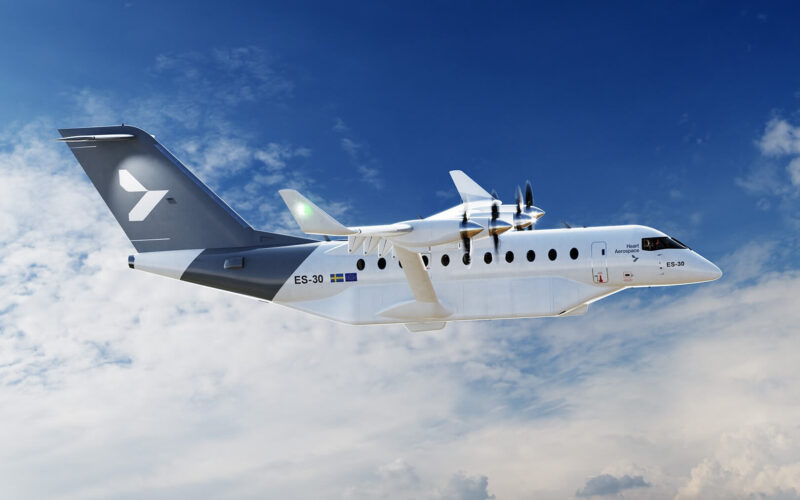Swedish electric aircraft manufacturer Heart Aerospace has revealed a new design for its hybrid-electric aircraft, the ES-30, dropping previous plans to develop the ES-19 electric plane.
The company has also revealed that Air Canada (ADH2) and Saab have each invested US$5 million in the electric plane manufacturer. As part of the investment, Air Canada (ADH2) has also placed an order for 30 ES-30 hybrid-electric planes.
“Air Canada (ADH2) is very pleased to partner with Heart Aerospace on the development of this revolutionary aircraft. We have been working hard with much success to reduce our footprint, but we know that meeting our net-zero emissions goals will require new technology such as the ES-30,” said Michael Rousseau, President and Chief Executive of Air Canada (ADH2).
Heart Aerospace has revised the design of its previous 19-seat electric aircraft, the ES-19, to add more passenger capacity. The redesigned aircraft is now called the ES-30, which will boast a 30-seat layout.
The ES-30, which is expected to enter service in 2028, will have a reverse-hybrid engine, consisting of two turbo generators powered by sustainable aviation fuel (SAF). The reserve-hybrid system can be used during a cruise on longer flights to complement the electrical power provided by the batteries.
The new engine is expected to provide the ES-30 with a fully electric range of 200 kilometers, an extended range of 400 kilometers with 30 passengers, and the flexibility to fly up to 800 kilometers with 25 passengers.
United Airlines and Mesa Air Group, which had previously ordered a total of 200 electric aircraft with an option for an additional 100 planes, have reconfirmed their interest in the ES-30.
“From the beginning Heart and United have been on the same page – with an acute focus on safety, reliability, and sustainability. Heart’s exciting new design – which includes expanded passenger capacity from 19 to 30 seats, and a state-of-the-art reserve-hybrid engine – is the type of revolutionary thinking that will bring true innovation to aviation,” said Scott Kirby, CEO of United Airlines.

